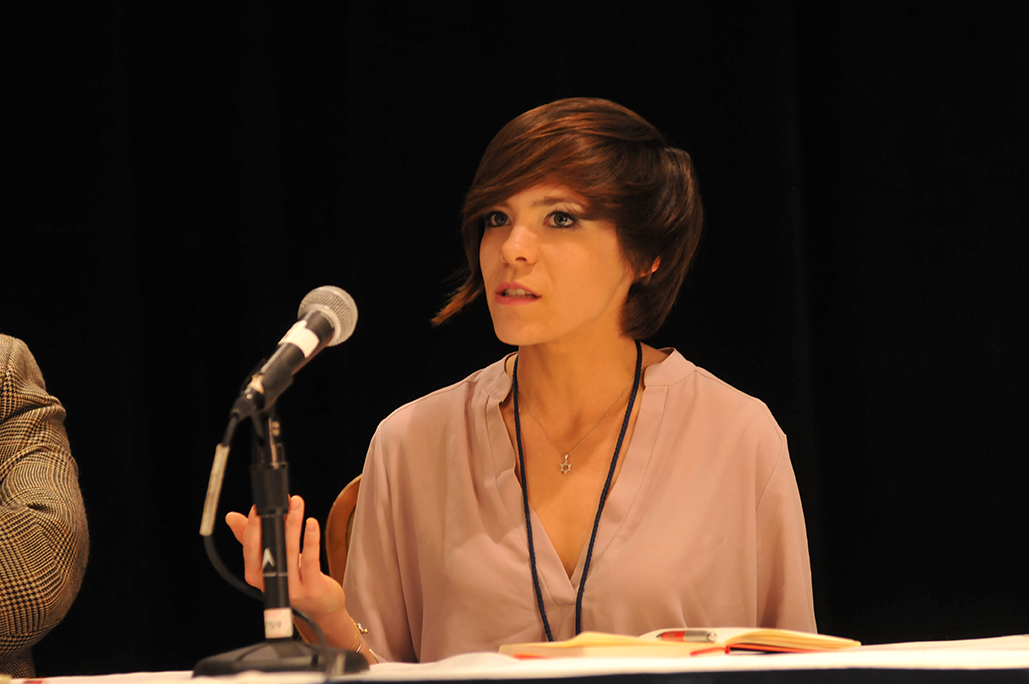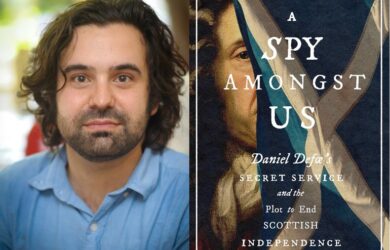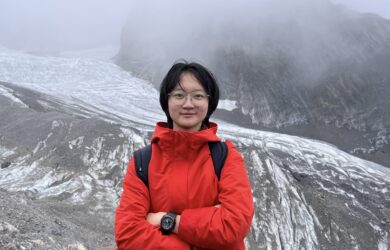
Victoria Herrmann wins the JM Kaplan Fund Innovation Prize to fund a research project on the impact of sea-level rise.
A Gates Cambridge Scholar has won a prestigious US social entrepreneurship prize for a research project on US towns and cities at risk of partial submersion due to climate change.
Victoria Herrmann's was one of 10 projects to scoop the JM Kaplan Fund Innovation Prize.
Her winning Rising Tides project will create a new online matchmaking platform that connects pro bono experts with climate-affected communities. Whether taking on archaeological work in Alaskan villages or oral histories in Mississippi’s historic black communities, the project will seek to safeguard heritage by connecting national expertise to some of the 13 million Americans who stand to be displaced due to rising waters in the coming years. It will initially focus on bringing technical assistance directly to small and medium-sized towns that are geographically remote and socioeconomically vulnerable. By connecting communities with volunteer professionals looking to donate skills – from a one-hour consultation to a fully fledged cultural resources management plan – the project seeks to build social cohesion, preserve historic sites and empower local traditions to withstand climate threats.
It is thought that by the end of this century, at least 414 towns and cities across America will be partially underwater from sea-level rise and accelerating extreme storms. The Rising Tides project will draw on Victoria's experience of working with community champions from Alaska to American Samoa through her America’s Eroding Edges project, a partnership with the National Trust for Historic Preservation.
The J.M. Kaplan Fund has provided catalytic funding for projects in their early stages of development in the form of grants. The Prize leverages this legacy of catalytic grant-making in the field of social innovation.
In addition to cash support of $150,000, paid out over three years, plus a $25,000 bank of funds for project expense, the Prize includes capacity-building counsel from experts in organisational development, board cultivation, media coaching and leadership training. The three areas considered for the US prize are the environment, heritage conservation and social justice.
The Fund says: "The J.M.K. Innovation Prize is awarded to projects or ideas that represent a game-changing answer to a clearly identified need; are innovative within the Fund’s three funding areas; demonstrate the potential to develop an actionable pilot or prototype with Prize funding; and hold out the promise to benefit multiple individuals, communities, or sectors through a clearly articulated theory of change."
Earlier this year Victoria [2014], who won the 2017 Bill Gates Sr Award and is currently completing her PhD in Polar Studies, was named on this year's Forbes 30under30 list for Law & Policy.

Victoria Herrmann
- Alumni
- United States
- 2014 PhD Polar Studies at Scott Polar Institute
- Pembroke College
Victoria is interested in exploring the nexus of climate change, human development, and public policy in the Arctic. Her PhD research focuses on how images and aesthetic codes construct values, identities, and ideas of power in the Arctic since the Second World War. From a young age Victoria's grandfather, a Holocaust survivor, has inspired her to pursue a career promoting social justice and empowerment. During her undergraduate degree, she followed that inspiration through two emerging personal interests - art and environmentalism. Through internships at The Smithsonian Institution and the Metropolitan Museum of Art, she helped to create programs to bring different, often contentious, communities together through museum educational events. At the Untied Nations and the Carnegie Endowment for International Peace, she later worked on research, writing, and advocacy for climate justice, urban resiliency in socioeconomically depressed neighbourhoods, and mitigation. Though passionate about art, climate change, and social justice individually, it was not until her Fulbright research that Victoria was able to bring her three disparate interests together. During her year in Canada, she studied how indigenous civil society groups used visual media to empower their voices at climate change negotiations. At Cambridge, she continues this multidisciplinary approach to scholarship by examining the changing visual narratives of geopolitics in the Arctic and its influence on perceptions of power, justice, and agency. As the Alumni Officer Victoria works closely with the Gates Cambridge Alumni Association to connect the scholar and alumni communities.












